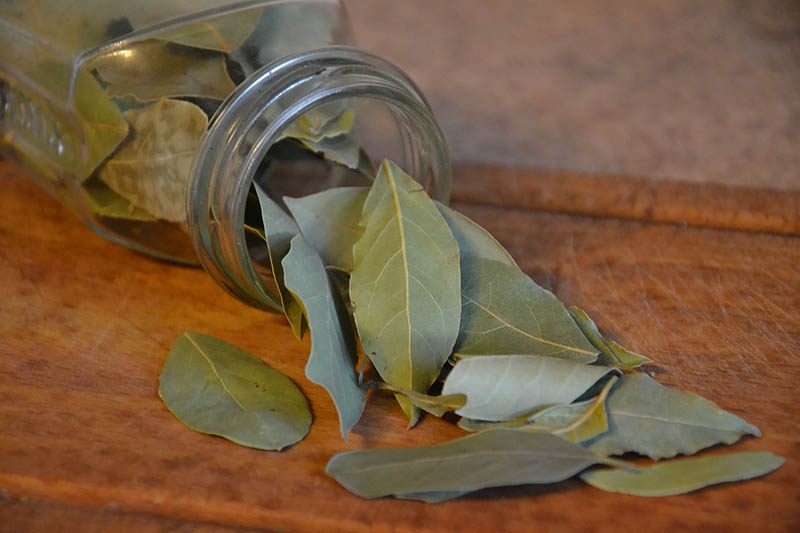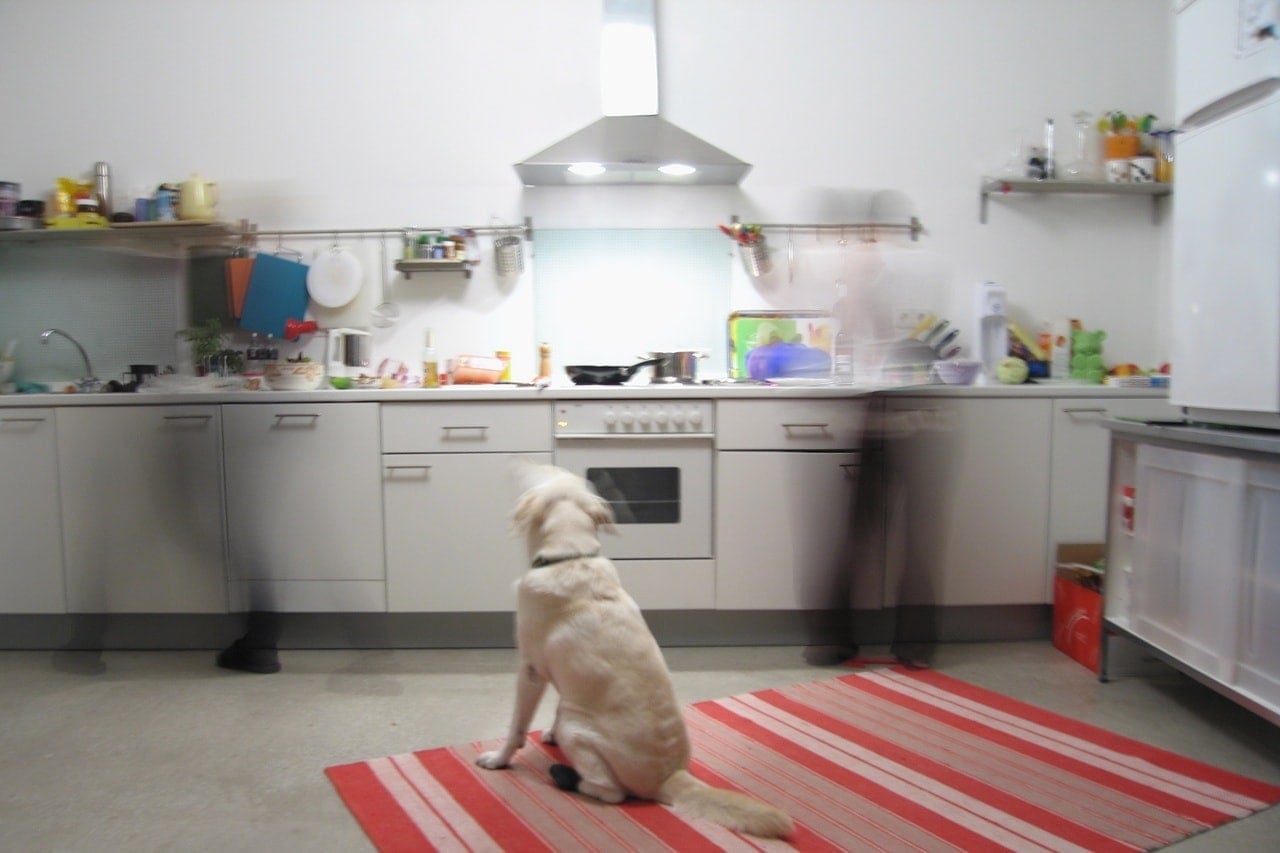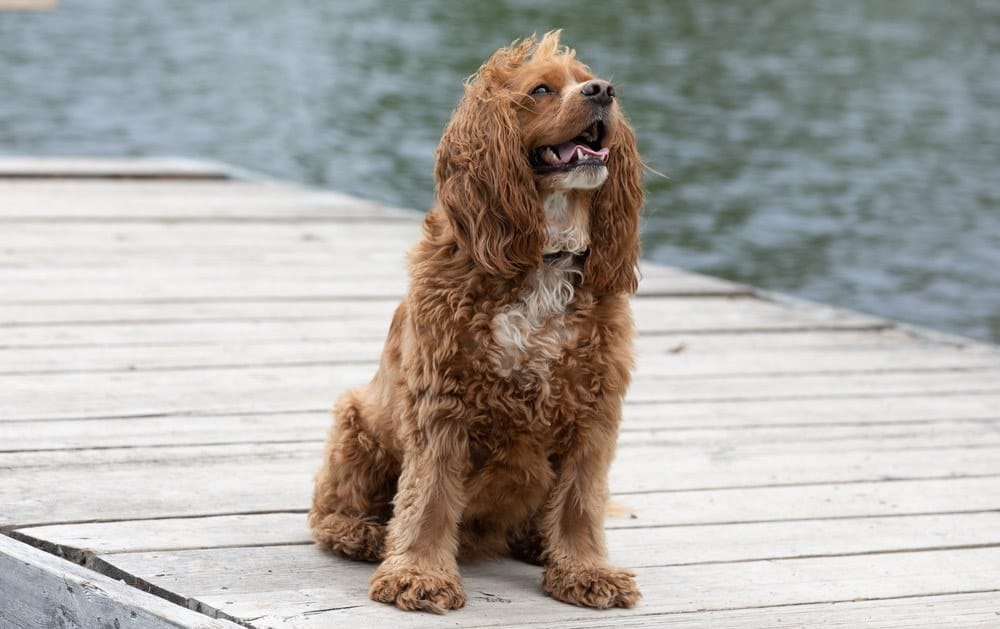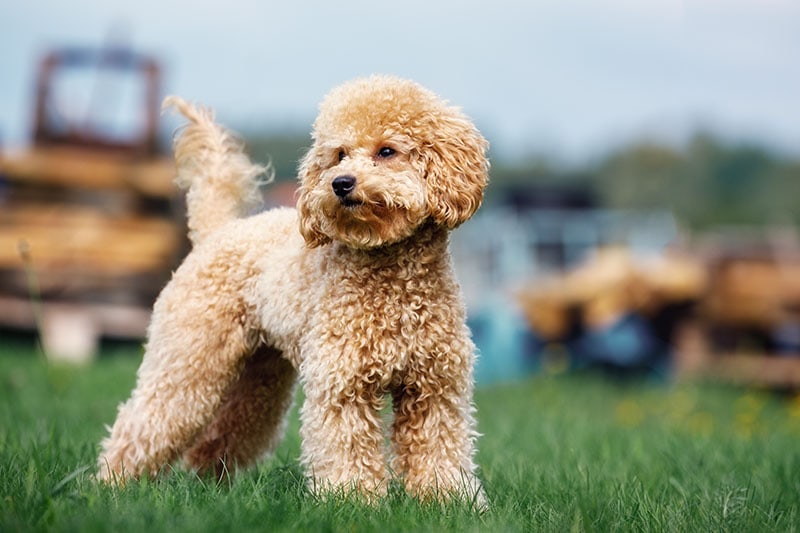Can Dogs Eat Bay Leaves? Vet-Reviewed Risks & FAQ
Updated on

Bay leaves are used as herbs and can be purchased whole or in powder form. They’re a wonderful contribution to many cooked meals because they add flavor and are widely used around the world. The leaves are sharp and pointy and don’t get soft when cooked with food, which is why they’re removed before the meal is served. If swallowed, they run the risk of cutting the mouth or digestive tract and can even cause choking. These are a few of the reasons why dogs shouldn’t eat bay leaves either.
If you frequently use bay leaves when cooking your meals, and your dog eats one before you’ve realized you’ve dropped any, they should be okay. However, keeping your dog away from these leaves will reduce the risk of any potential problems occurring. Let’s further discuss why your dog shouldn’t eat these leaves and what you need to look out for if they do.
The Risks Around Dogs Eating Bay Leaves
Dogs shouldn’t eat bay leaves for several reasons. Firstly, dried bay leaves are hard and have sharp edges. When swallowed by your dog, these leaves have the potential to cut their mouth, throat, and even their digestive tract. If your dog has cuts in their mouth and throat, it may experience pain and refuse to eat or drink anything, which can lead to weight loss and dehydration.
Thankfully, the chances of cuts caused by bay leaves resulting in extreme pain are rare, but it’s better to avoid the risk entirely. Any level of pain in a dog’s mouth or throat is uncomfortable for them and can cause them stress.
Another concern with consuming bay leaves is that they can cause an obstruction in the gastrointestinal tract.1 This is more likely to occur if they have swallowed several bay leaves instead of just one. Remember, these leaves don’t soften, which is why they can cause an obstruction in your dog’s digestive tract.
Obstructions can be partial or complete and are concerning because it blocks food and water from passing through them. Dogs obviously need food and water for their bodies to function properly. Obstructions also cause damage to the tissue around it.
If your dog has a bowel obstruction, you may see signs of vomiting, diarrhea, weakness, bloating, and abdominal pain. If your dog is experiencing these symptoms after eating bay leaves, you need to take them to the vet immediately.

Are Bay Leaves Toxic to Dogs?
Other than being dangerous, bay leaves are also toxic to dogs. Although one bay leaf shouldn’t cause much of a problem, eating a few is likely to have a nasty effect on your dog.
It’s the eugenol, as well as a few other essential oils found in bay leaves, that dogs are toxic to. This oil is also found in cloves and nutmeg. Eugenol is often used in fragrances and flavorings. While eating one bay leaf may only bring about a burning sensation in your dog’s mouth and an upset stomach, consuming a large quantity will often cause vomiting, diarrhea, weakness, and lethargy.
Due to the presence of the eugenol and other essential oils found in these leaves, your dog may experience disorientation, seizures, and in some cases, fall into a coma. The risk of fatality in such cases is high.
Do I Need to Take My Dog to the Vet?
If you’re sure that your dog only ate one bay leaf, it probably isn’t necessary to take them to the vet as long as they’re eating and drinking normally without showing any signs of unusual behavior. Such a small amount of this herb isn’t going to cause serious health problems for your dog but keep an eye on them just to make sure. And, it’s never a bad idea to check in with your vet, to see if they have any additional concerns.
Unfortunately, if your dog ate a large number of bay leaves, you have every right to be concerned and should act quickly. They will need to be checked by the vet to ensure that it hasn’t caused an obstruction in your dog’s digestive tract or caused wounds from the sharp points on the way down.
Your dog will also need to be observed and examined due to the toxicity of the bay leaves. They might become dehydrated and weak because of the diarrhea and vomiting, which could make the situation even worse. Your vet will give your dog the correct care and treatment to give them the best chance at recovery.
How to Prevent Your Dog From Consuming Bay Leaves
To prevent your dog from getting their mouths on bay leaves, you need to treat this herb the same way you do all your other dangerous and toxic substances. You need to keep them in a container that your dog can’t open and up in a cupboard that your dog can’t reach.
When working with bay leaves, remove your dog from the kitchen. You should keep your dog out of the kitchen when working with food, regardless of whether you’re using bay leaves or not, because you’re working with knives and hot equipment, as well as ingredients that may not be safe for your dog to eat.
If you can’t keep your dog out of the kitchen, be careful when handling the bay leaves, making sure that none drop to the ground or are left on the table unsupervised.

Herbs and Spices That Dogs Can Enjoy
Your dog may need to stay clear of bay leaves, but this isn’t the case for all herbs and spices. If you want to treat your dog by adding a little extra flavor to their cooked meals, you can use the herbs and spices below without worrying about their safety.
- Rosemary: This is often found in dog food due to its preservative properties. It can also be beneficial to your dog’s immune health.
- Dill: This is used to rid your dog of stinky breath and gas. It can also help with digestion.
- Parsley: This also helps fight bad breath and has anti-inflammatory properties.
- Ginger: Just like in humans, ginger can help reduce nausea and upset stomachs in dogs.
Conclusion
Although your dog can get away with eating one bay leaf without experiencing serious issues, these leaves are toxic and dangerous to them. Dogs aren’t able to digest these leaves well, and they can cause an obstruction in their digestive tract. They’re also sharp and pointy, which can cut their mouth, throat, and digestive tract.
The leaves contain essential oils that are toxic to dogs, and when eaten in large quantities, they can experience diarrhea and vomiting.
Featured Image Credit: Nickola_Che, Shutterstock













